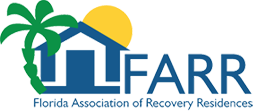Statistics Indicate a Higher Percentage of Long Term Recovery Among Those Attending an IOP Program in Fort Lauderdale. It’s long been known that by attending an intensive outpatient program victims of addiction can significantly improve their chances of long term recovery and sobriety. IOP is an acronym for “Intensive Out Patient.” Many attendees choose to participate in an IOP Program in Fort Lauderdale after graduation from a residential treatment program. However, an equal number choose to attend IOP without having been in residential treatment. The goal of these types of programs is relapse prevention and long term sobriety.
In this article we will present a detailed discussion on addiction relapse. Only a small percentage of people addicted to drugs and or alcohol achieve long term recovery without ever relapsing. This article will review some of the reasons why; and discuss some of the success factors of those who do not relapse.
Will Attending an IOP Program in Fort Lauderdale Prevent a Future Relapse?

If you work the substance abuse rehabilitation plan at The Source addiction treatment center you get the tools for long-term recovery.
Needless to say; there is no single answer to that question. It depends on the individual and their commitment toward working a program. It is certainly feasible for a first time participant at IOP drug rehabilitation programs in Fort Lauderdale, Florida to graduate from that program and create a personalized plan for long term recovery. In fact, one of the most important activities of many IOP programs is to create that actual plan. Unfortunately, adhering to a recovery plan can be (and usually is) much more difficult than creating it!
As we all know, addiction is a chronic disease that seldom resolves itself. Victims of addiction engage in repeated drug or alcohol use in spite of negative consequences. Even after overdosing and experiencing a near-death experience; many addicts will leave the hospital only to seek their dealer, feed their addiction and potentially overdose again.
In reiteration, a relapse or return to using drugs or alcohol after a period of sobriety is typical of many addicts. It’s unfortunate, but is an all too common aspect of addiction and recovery. Statistics report that 40-60% of people recovering from addiction will experience a relapse at some point in time. Some reports suggest the actual numbers are closer to 70-80%.
Relapsing after a period of sobriety can be problematic for several reasons including:
- it often restarts the destructive cycle of addiction,
- relapsing may more easily lead to an overdose and death
An example might go like this; an addict who has been sober from opioids such as painkillers or heroin for an extended period of time could be more likely to overdose. If they return to their usual dose after a period of abstinence, tolerance to the drug is reduced and their body is no longer able to handle the amount they were accustomed to. Additionally; the inconsistency of drug strength and cutting agents are always a risk; but specifically more-so during a relapse.
Benefits of Attending an IOP Program in Fort Lauderdale

As we have mentioned; an IOP drug rehabilitation program is a type of addiction treatment for people who have attended a residential program and would benefit from more support. Transitioning to IOP treatment and receiving ongoing intensive support can aid the difficult transition to living at home. IOP is also a great way for folks that have not attended residential treatment, but would benefit from a therapeutic program that does not require inpatient care. Typically, but not always, an IOP program in Fort Lauderdale will provide at least 9 hours of treatment each week spread out over the course of 3 to 5 days.
An IOP program of treatment may offer a range of services to help victims of addiction. These services may include (but are not limited to):
- Intensive group and individual therapy sessions to identify and help solve Trauma
- Addressing unhealthy thoughts and beliefs (and ways to modify them)
- Participate in alternative therapies like EMDR, RRT, Mindfulness and Massage.
- Learn methods of conflict resolution and coping skills,
- Medication management – Provides the ability to have a doctor evaluate and determine if a person would benefit from medications to treat drug and alcohol withdrawal, or treat other mental health issues.
- Reintegration – assistance and a connection to community resources, such as job training, housing, and healthcare.
Common Goals of Attending IOP
Relapse prevention is obviously the universal goal of IOP treatment. Relapse prevention requires training to help victims of addiction to derive ways of dealing with cravings and triggers without the use of drugs and alcohol. These programs teach relapse prevention skills during group and individual therapy sessions.
From a treatment center perspective, other primary goals of attending an IOP program in Fort Lauderdale include:
- Assist clients in achieving and maintaining abstinence from drugs and alcohol.
- Implementation of lifestyle changes that promote abstinence and general well-being.
- Increase participation in recovery support groups including community 12 step meetings
- Develop, maintain, and use a positive support group.
- Create a plan for “coping with life” skills.
- Helping clients address individual issues such as unemployment and legal issues.
What to Expect When Attending an IOP program in Fort Lauderdale

As we have been discussing, an IOP addiction rehabilitation program in Fort Lauderdale, Florida will utilize several techniques to assist their clients achieve sobriety and maintain a long term recovery. Treatment programs may provide some or all of the following therapies and activities:
Twelve-Step Integration – 12-step philosophy is the basis of self-help groups like Alcoholics Anonymous and Narcotics Anonymous. 12-step meetings provide a type of group therapy where the focus is on
- Accepting addiction as a disease
- Surrendering to a higher power (as defined by each individual)
- Forming relationships with other sober people.
IOPs that utilize this approach encourage participants to attend community 12-step meetings, read the relevant literature, and most importantly, work the steps.
Cognitive Behavioral Therapy (CBT) –Cognitive Behavioral Therapy helps victims of addiction to learn alternative ways of thinking and behaving. Everybody has an inherent belief system that may have been instilled in childhood or adolescence. Much of this therapy is designed to identify root causes of “defective thinking” and other mental health issues that may be at the root of the addiction.
Motivational Interviewing assists people in resolving their vacillation about sobriety and treatment. Ironically, a lot of people who are addicted to drugs and alcohol have a diverse set of feelings about quitting. Skilled addiction counselors help their clients understand how their drug and alcohol use conflicts with their life goals. The goal is to motivate the client to take positive action. Addiction councilors work in partnership with those they are treating.
The Alternative Therapeutic Approach employs less traditional methods of psychotherapy and forms the belief that addiction is a disorder of body, mind and spirit. It attempts to address the underlying problems of addiction, not just the substance abuse. An IOP program in Fort Lauderdale using this approach may provide therapy sessions that include newer methods such as EMDR, RRT, Mindfulness and others. Participants also work in peer group sessions where they are confronted on their issues in a controlled environment.
There is no Reason NOT to Enroll in the IOP program in Fort Lauderdale
Logic dictates that there are no negative aspects to participating in an IOP program in Fort Lauderdale. Many drug addicts and alcoholics suffer over the long term and experience relapse after relapse because they are unaware that their addiction may be just a symptom of an underlying mental health issue.
The Source Treatment Center provides an IOP program in Fort Lauderdale that is considered by many to be among the best. If you are seeking treatment for Trauma and Drug or Alcohol Addiction in Fort Lauderdale, contact The Source Addiction Treatment Center at (800) 204-0418.
 The Source quite frankly saved my life and got me back on track, never giving giving up on me. When you are thinking about and looking through all of the different places to go for treatment this is the one that should stand out from the rest.
The Source quite frankly saved my life and got me back on track, never giving giving up on me. When you are thinking about and looking through all of the different places to go for treatment this is the one that should stand out from the rest.




























